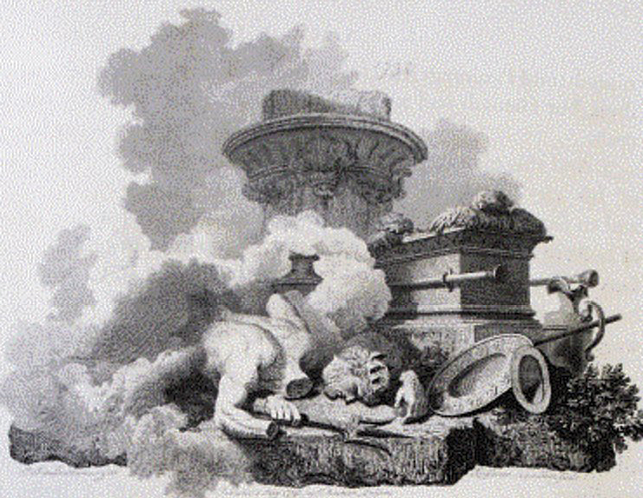Does God have a sense of humor? As one who has told a joke or two, I’d like to know. Does He frown on conversation that goes beyond “yea and nay”? Or does He agree that “laughter is the best medicine”? If He has given us the ability to laugh at things that seem humorous to us, does He share our emotional releases?
Scripture doesn’t say. But it clearly reveals one circumstance when God does laugh. “He who sits in the heavens shall laugh; the Lord shall hold them in derision.” (Psalm 2:4) Obviously, the Lord laughs and scoffs at those people who “plot a vain thing,” at kings and rulers who set themselves against the Lord (Psalm 2:1-2). God will “dash them to pieces like a potter’s vessel.” (verse 9)
We recall the day when God’s prophet Elijah contested with 450 prophets of Baal on mount Carmel (1 Kings 18). Who would send fire from heaven to consume their respective sacrifices: Jehovah or Baal? The priests of Baal went first, pleading with their god, but to no avail. Elijah mocked and laughed at their dancing, shouting, and blood-letting. Surely God in heaven also laughed in derision at their rebellious attempts to upset and replace Him. He sent fire and smashed His enemies like clay pots.

Then there was the day when God laughed at the Philistines, who had captured the ark of God and brought it into the temple of Dagon, their idol. The next morning the Dagon worshipers found their god face down in the dirt. They propped him back up, but on the morrow found him again fallen, with his head and hands broken off. One can easily imagine God chuckling as He toppled this powerless idol. And in derision God smote and terrified the people of Ashdod (the Philistine city where the temple of Dagon was located) with frightful tumors (1 Samuel 5:1-6).
In Moses’ day God had multiple occasions to laugh. When Pharaoh repeatedly refused to release the children of Israel from their bondage, God sent a series of ten plagues to change his mind. You might remember them: water turned to blood, frogs, lice, flies, plague, boils, hail, locusts, darkness, and the death of all the Egyptian firstborn.
We know that the Egyptians were polytheists, worshiping scores of national and local gods. And it seems that most of the plagues had a direct or indirect connection to one or more of their idols.
Heqet was a goddess of fertility and life. She was depicted as a woman with a frog’s head. The second plague was like God saying, “You love a frog-god? Here’s a limitless buffet of her legs. Stuff yourselves!”
Bat was a cattle goddess, depicted as a human female with horns of a cow. Reshoph was the god of plagues. Kek was a god of darkness and light. Sobek was associated with water and the Nile. And many were the gods and goddesses of healing, medicine, protection, and power. If these associations are valid, God was surely laughing as He held Pharaoh and his people in derision. He not only afflicted them physically, but put to shame their whole system of idol worship.
God laughs at His enemies, but smiles upon His beloved children. God delights when His believers do His will. Heaven rejoices when a single sinner repents. Can anyone imagine Jesus not smiling when He took the little children up in His arms and blessed them? No, God does not laugh at His own, but blesses and keeps them. He causes His face to shine upon them, which He did especially when His own Son redeemed them on the cross. He daily lifts up His merciful countenance and gives us peace.
Therefore, “kiss the Son” (Psalm 2:12), taking refuge in Him only. And so daily bask in the peace of God’s forgiving and shining countenance.
is a retired pastor. He lives in Eau Claire, Wisconsin.


